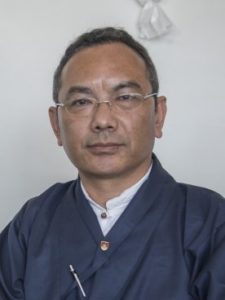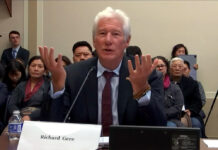
(TibetanReview.net, Jan22’20) – The Central Tibetan Administration (CTA) at Dharamsala has on Jan 21 criticized Myanmar for calling Tibet, along with Taiwan and Xinjiang, “inalienable parts of China” in a joint declaration with visiting Chinese President Xi Jinping on Jan 18. Xi was on a two-day visit to sign 33 Belt and Road Initiative (BRI) contracts with Myanmar for what is seen as a second China–Pakistan Economic Corridor (CPEC).
The joint declaration expressed China’s firm support for Myanmar’s “development” and “stability” and Myanmar’s “firm commitment to the One China Policy” and recognition of Taiwan, Tibet and Xinjiang as “inalienable parts of China”.
Myanmar also expressed support for China’s efforts to resolve issues relating to Taiwan, Tibet and Xinjiang. These efforts do not involve any sort of negotiation but sinicization by means of merciless armed repression.

The joint declaration was posted on the websites of the Foreign Affairs Ministry of both China and Myanmar.
Calling the joint declaration a “deliberate distortion of Tibet’s historical status,” Information Secretary Mr Tsewang Gyalpo Arya of the CTA has said the “Chinese government’s insistence that Tibet is an alienable part of (China) from history is nothing but empty posturing without a grain of truth.”
He has made it clear, however, that the CTA was not not seeking independence and was “deeply committed to the Middle Way Approach to resolve the Sino-Tibet issue” to achieve a meaningful autonomous region solution.
Earlier, on Jan 18, the two main political parties of Taiwan as well as the country’s government issued separate angry statements, denouncing Myanmar as well as China for the joint declaration.
In particular, the KMT said it had always believed that ‘one China’ referred to the Republic of China (ROC) established in 1912 “which has independent sovereignty, although its jurisdiction is currently restricted to Taiwan, Penghu, Kinmen and Matsu.”
Taiwan’s Ministry of Foreign Affairs spokeswoman Joanne Ou said her country was not a part of China, that only the Taiwanese government elected by its people could represent Taiwan in the international arena.





